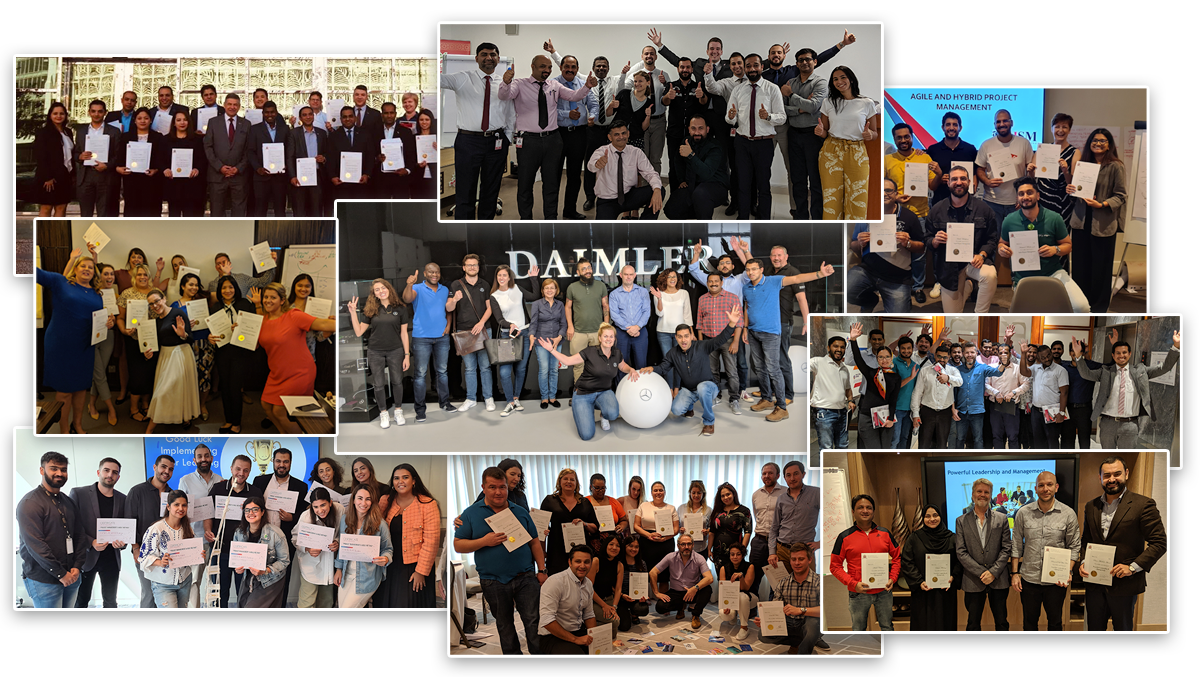In today’s sales landscape, pushing products just does not cut it. Buyers are informed, selective, and expect more from their interactions with sales professionals.
That is where consultative selling comes in.
Rather than going for the hard sell, consultative selling is about:
- building relationships,
- asking the right questions, and
- genuinely understanding your customer’s needs to deliver real solutions.
Let us explore what consultative selling means—and the practical consultative selling closing techniques you can use.
Why Trust ISM Training?
Over 20,000+ graduates
Have advanced their career with ISM Training
89%
of ISM graduates say our course helped them get a promotion.
76%
said that their training helped then increase their salary.
97%
of graduates want to study more of our courses.
Our graduates are working in some of the biggest companies worldwide, companies like...






What is consultative selling?
Consultative selling is a customer-first sales approach.
Instead of focusing on closing the deal, it focuses on uncovering the buyer’s true challenges and goals. As a sales rep, you then offer tailor solutions that actually help.
But, is consultative selling effective? According to mailchimp, almost 53% of sales reps say a consultative approach helps make their sales process more efficient.
Think of it as being a trusted adviser, not a product pusher.
So, what are some consultative selling techniques?
There are a variety of different techniques you might wish to implement to become better at consultative selling.
Here, we look at key consultative selling steps. They can help you improve your business.
Research
You should always aim to learn about the customer’s industry, business, and possible pain points before engaging. It shows you are prepared and serious about helping.
Use platforms such as LinkedIn, social media and company accounts to help you better understand your client.
Ask the right questions
Great consultative sellers do not just talk—they ask smart, open-ended questions that uncover deeper needs.
Avoid yes/no questions and predictable scripts. Instead:
- Time your questions thoughtfully
- Ask questions that encourage reflection
- Stand out with unexpected, insightful prompts
The goal? Help potential customers discover insights about their own business—and see the value in your solution.
Looking for the best consultative selling probing questions? Read our guide for effective questions to enhance your consultative selling approach.
Understand your buyers’ needs
The more you know before the conversation starts, the stronger your position.
Use publicly available info like social media, company websites, and industry news to learn what matters most to your prospect.
Consultative selling is all about treating each customer as unique—so dig deep, stay curious, and connect the dots.
Listen to build trust
People want to feel heard. The simple act of actively listening can set you apart.
Show you are paying attention by referencing past conversations:
“Last time we spoke, you mentioned struggling with [issue]—has anything changed?”
This kind of follow-up shows you care, which helps with building rapport and earning trust.
You should also regularly check if you have understood the customer correctly by paraphrasing and asking for confirmation. This avoids misunderstandings and shows active listening.
Handle objections with empathy
Do not argue or push back aggressively. Instead, acknowledge concerns, ask for more details, and respond with thoughtful solutions.
When a customer raises an objection, it is not a rejection. Instead, it is a chance to understand them better. Rather than getting defensive, stay calm and listen closely.
Start by acknowledging their concern (e.g., “I understand why that might be a concern”) to show empathy.
Then, ask clarifying questions to uncover the root of the issue. Is it about the budget? Timing? Uncertainty?
Once you have a clearer picture, offer a solution that directly addresses their concern. It should be backed by facts, examples, or reviews if needed. This approach not only keeps the conversation positive but also shows that you are genuinely there to help—not just to sell. Over time, this builds trust and positions you as a reliable partner.
Act like a teacher
Once you understand your customer’s problem, position yourself as an educator.
- Share examples from similar situations—both successes and failures
- Explain why your solution works and how it addresses their needs
- Guide, do not push
Remember: A consultative selling process is about long-term relationships, not quick wins.
Tailor your solution
Traditional selling is about offering the same product or service to every customer. It is no surprise that 62% of people said they would stop being loyal to a brand if it delivered a non-personalised experience.
That is why consultative selling is king – as it is all about matching your solution to their specific needs.
Once you fully understand their goals and challenges, you can recommend only what truly helps them.
This shows you have listened and that you care about their success—not just making a sale. It also builds trust and makes your solution more valuable in their eyes.
Stay patient and always follow up
Consultative selling is not about closing the deal in a single call.
It is about giving your customer time to process, ask questions, and arrive at a confident decision.
According to leadsquared, 33% of salespeople find follow-ups to be the hardest task. However, following up regularly—with purpose and value—keeps the relationship warm and builds trust over time.
Leads can go cold because of a variety of different reasons. Some sales are straightforward, but others take more time and patience. You can follow up to address any questions or concerns, or even to ask for feedback.
Start your course today!
We offer a comprehensive curriculum that covers all of the essential topics. Our experienced instructors will provide you with the support and guidance that you need to succeed.
Helping you improve your consultative selling skills and techniques
At ISM Dubai, we help teams transform their sales approach through tailored training programmes in consultative selling, wellness, and performance.
Our expert-led workshops help you:
- Boost productivity with proven time management strategies
- Combat burnout and workplace stress.
- Improve leadership impact
- Equip teams with practical, real-world sales skills
With years of experience working with sales teams across Dubai, we know the challenges your team faces—and we are here to help.
Enquire today to explore how our consultative selling course can help your organisation master consultative selling and drive real results.
We let our graduates do the talking...
Looking further ahead?
View our course calendar in full
Frequently Asked Questions
To deeply understand your customer’s needs and offer tailored solutions—not just make a quick sale.
Traditional selling focuses on products. Consultative selling focuses on building the relationship with a customer and solving their unique problems.
Both sides—buyers receive better solutions, and sellers build long-term relationships and trust.
Yes. Deep product knowledge allows you to recommend the best-fit solution and position yourself as a trusted advisor.
Absolutely. With the right techniques, you can still ask meaningful questions and add value quickly—even under pressure.
Join 1000's of individuals and teams certified by the Institute of Sales & Marketing

Our trending courses
At ISM, we combine top-tier training courses with industry-leading instructors.
View all coursesTestimonials from Our Valued Clients
Discover the transformative experiences our clients have had with our training programs.
Hear directly from those who have unlocked their potential and achieved remarkable success.

Some other providers courses can be quite a chore! However, I felt fully engaged and excited by all the new selling tools I have...

Daniel Graham

Instead of just telling me what to do, they showed us how to do it as well as why to do it. They used real-life experiences...

Sujit Nair

The training was delivered in an easy to absorb manner and focused on all the key areas...

Paul Baker CFP



